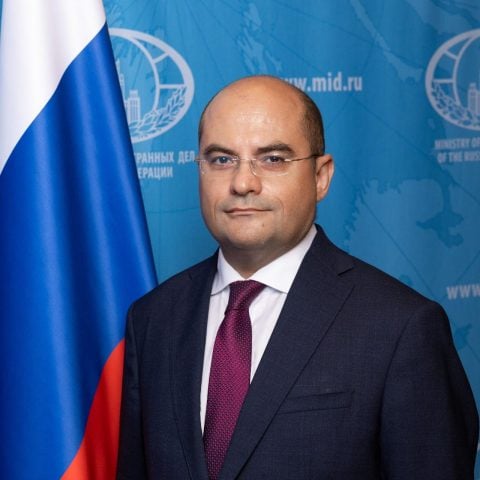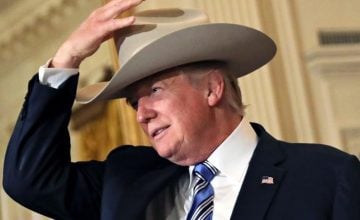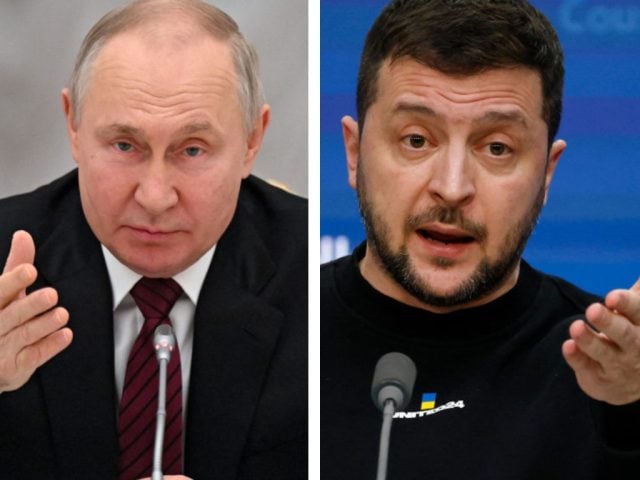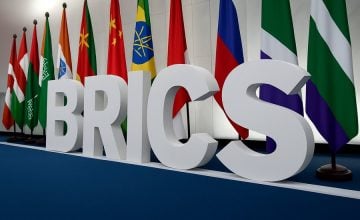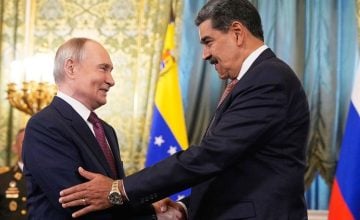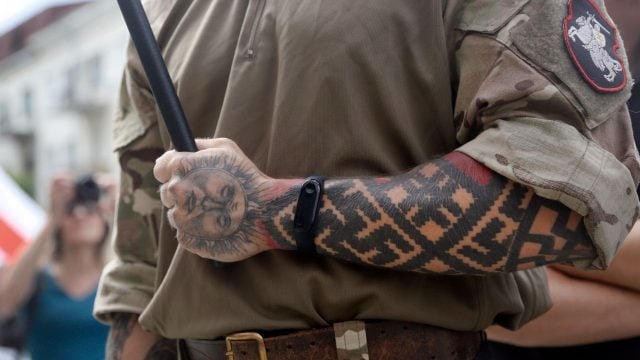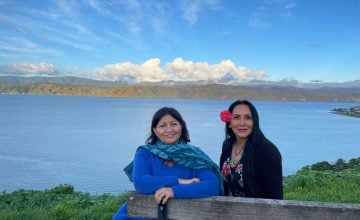By Javier Pineda, Director of El Ciudadano
At the Embassy of the Russian Federation in Chile, El Ciudadano interviewed Ambassador Vladimir Belinsky, who arrived in the country about a year ago. Ambassador Belinsky graduated from Moscow State Linguistic University and has served in several posts at Russia’s Ministry of Foreign Affairs, notably in the Latin America Department.
In this interview, we discuss the conversations between the Russian Federation and the United States regarding the Special Military Operation in Ukraine and potential paths to end the conflict; we ask about Russia’s international priorities—especially the role of BRICS and expectations for the next UN Secretary‑General; and we explore areas of cooperation between Russia and Latin America in general, as well as the outlook for relations between the Russian Federation and Chile in particular.
Javier Pineda: Ambassador Belinsky, thank you for speaking with El Ciudadano. One topic we wanted to address is Russia’s view of a possible peace process following the conversations in Alaska between President Vladimir Putin and Donald Trump, which raised expectations a few weeks ago. However, more than a month has passed and those announced talks appear stalled. What is Russia’s perspective on the progress of the special military operation and the chances of launching a peace process?
Vladímir Belinsky: Russia has never refused to negotiate; we have always kept the door open. In fact, we have repeatedly put forward concrete proposals to end the conflict. These range from the Minsk agreements—under which Donbas would remain within Ukraine—to the Istanbul proposals, initialed by the parties on the same principle. Later, in June 2024, President Putin presented updated proposals tailored to the realities on the ground.
Our position remains unchanged: to resolve this—or any—conflict, the root causes must be addressed. That requires guaranteeing our country’s security and the rights of the Russian‑speaking population in Donbas, whose rights were violated and who, in our view, faced a Nazi‑style policy of annihilation. This began in 2014 after a bloody coup that broke Ukraine’s constitutional order.
JP: Regarding the situation of Russian speakers, officials such as Minister Lavrov and President Putin have said Ukraine is one of the few countries that prohibits a language. What is the current situation of this population in Ukraine, and how could this phenomenon extend to other regions, such as Moldova?
VB: It was not only a prohibition on the Russian language, but a war against everything Russian: the traditional Orthodox faith and the entire cultural heritage. Upon taking power after the coup, they launched a campaign against the east of their own country, thereby destroying territorial integrity.
Under international law, territorial integrity is respected only if the central government represents all the peoples of the nation. When that government wages war against one of its peoples—as occurred during eight years of shelling in Donbas (2014–2022) that, we estimate, caused about 14,000 civilian deaths, including hundreds of children—that representativeness is broken. President Zelensky’s policy was summed up as «suitcase, railway, Russia», a clear expression of ethnic cleansing.
JP: Authorities of the Russian Federation have characterized this conflict as one against NATO and Western countries led by the United States.
VB: The danger was not only the attempt to deploy NATO infrastructure on our borders, a long‑standing project to encircle and confront Russia. Much of that infrastructure has been neutralized during the Special Military Operation. At the front, we are advancing steadily, dismantling the war machine that the West has supplied—an enormous waste for them.
A NATO shell costs between $5,000 and $10,000; a Russian one, $500. This U.S. administration seems to have realized that it is a dead end that brings no benefit, especially for the American people, and that it is leading to economic degradation in the West. Europe, for its part, is experiencing a significant industrial breakdown. A French political scientist, Emmanuel Todd, put it clearly: without the United States, Europe cannot sustain this effort, which goes against the interests of its own peoples.
This situation will end sooner or later. Peace will prevail, and we are preparing for that day. We keep the door open both to Western countries willing to pursue a constructive policy and to the rest of the international community.
JP: In recent years, Russia has actively worked with other global actors under a multipolar vision—such as BRICS, the Shanghai Cooperation Organization, and the Eurasian Economic Union. What is the Russian Federation’s current perspective on this multipolar world, and where do you think action is headed toward a polycentric order?
VB: We consider the multipolar world a reality, not a formation in progress. Some actors are trying to maintain their hegemony through wishful thinking that no longer works, seeking to impose themselves by force on an order that has changed.
In this new landscape, we must be prepared. As our president noted at the Valdai Forum, it will not be an easier world. We had grown accustomed to unipolarity, with a single decision‑making center. That is over. Today, each country must defend its interests in a more complex and less coordinated environment, but also one that is more democratic, stable, and fair.
It is a world in which every nation can make its voice heard and defend its interests through dialogue and classical diplomacy: present your positions, talk, and seek consensus that balances everyone’s interests. That is what we coordinate with the countries promoting this idea, who represent the majority of the world’s population. Even in the United States, this concept is being analyzed. The crucial thing is to adapt to this world, not to try to annihilate these poles of growth, as that only leads to a confrontation with no way out.
JP: Ambassador, what is the Russian Federation’s view of Latin America as a region? There is physical distance, but also historical proximity—especially with the ties some Latin American countries forged with the former Soviet Union. What is the general perspective, considering as well that Venezuela’s National Assembly has just approved a strategic treaty with Russia, previously discussed by Presidents Maduro and Putin?
VB: For Russia, Latin America has always been a pole of growth. We envision open cooperation with strong economic and cultural foundations, working with key countries that have a long integrationist tradition—in which Chile has played and continues to play a very important role in forums such as the Rio Group, CELAC, and as an Associated State of MERCOSUR.
We support the exchange of experiences and integration, especially in infrastructure such as energy and transport, areas where Russia has significant development and expertise to contribute.
Our relations with Latin America have always been positive and without conflicts. We develop our cooperation based on the openness of each sovereign country. There are concrete projects, such as a vaccine factory in Nicaragua that produced 19 million doses of flu vaccine for Central America and the Caribbean, or a nuclear center in El Alto, Bolivia, which is already operating and producing medical inputs to fight cancer.
Cooperation extends to strategic spheres such as public health, education, and security, including the fight against drug trafficking—a crucial issue for us, since the volume of cocaine entering Russia today exceeds the total that reaches Europe. We are very willing to cooperate on this practical and important issue.
JP: A few weeks ago, President Putin or Minister Lavrov indicated that, by a tacit rule, Latin America should hold the next UN Secretary‑Generalship. Are any names being floated, or is there an open field? What criteria would guide Russia’s position?
VB: There are several names. We keep the door open to discuss each candidacy, with full respect. We are aware of President Boric’s presentation of former President Michelle Bachelet’s candidacy. I understand this is a process in development in which the Chilean side will carry out the pertinent consultations at the appropriate time.
JP: Finally, Ambassador, what are the prospects for expanding cooperation between the Russian embassy and Chile? In which areas are there ties today?
VB: On December 4 we will relaunch the Chamber of Commerce, Culture, and Sport, which already exists as a legal entity. The idea is to present it and invite business leaders and representatives from the cultural and sports worlds to a mini‑forum to gather ideas and contacts. The plan is to follow up by organizing bilateral business missions, because the potential of the relationship is enormous.
In 2018, bilateral trade was nearly $1 billion, with a balance very favorable to Chile. I am sure this potential can multiply in areas such as infrastructure, transport, and banking connectivity, since our economies are almost 100% complementary and tariffs are very low. What is needed is to restore existing cooperation mechanisms—such as the joint commission—to resolve obstacles.
Culturally, we have enormous potential. Chilean audiences are very well educated and have a very good perception of Russian culture, and vice versa. There are many points of connection, including gastronomy, with projects such as «Pacific Cuisine». We are open to cooperation in all areas.
Javier Pineda: Ambassador, thank you for the interview.
Vladímir Belinsky: Thank you, Javier, for the questions. Our door is always open.
